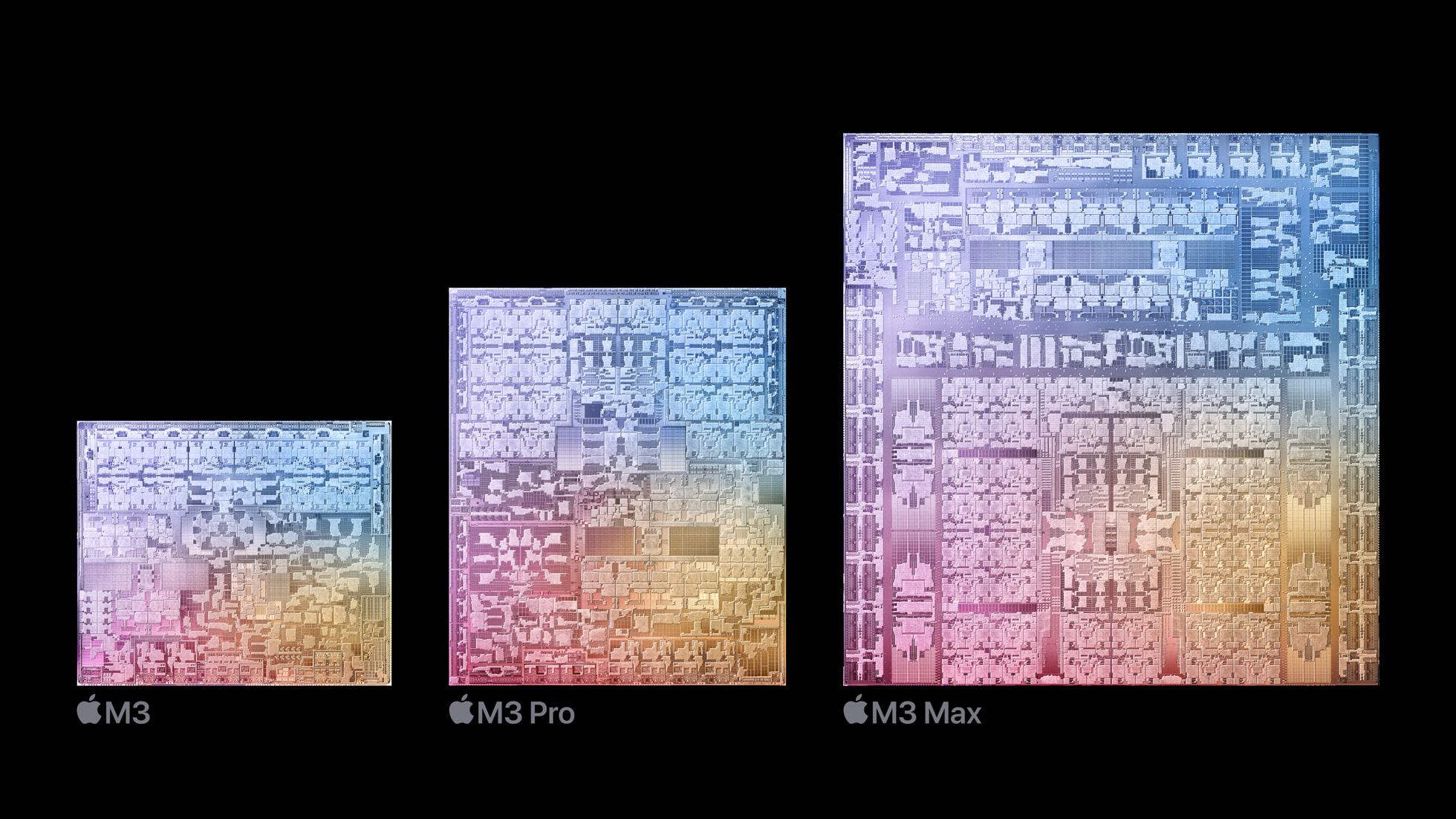So here they are, the first three nanometer chips. MacBooks and iMacs only for the moment. The iMac with 8GB Ram and 512 GB SSD is 2.059,00 € in Germany, and can have a maximum of 24GB & 2TB.M3 Max pushes the transistor count up to 92 billion and takes pro performance to the next level. The 40-core GPU is up to 50 percent faster than M1 Max, and support for up to 128GB of unified memory allows AI developers to work with even larger transformer models with billions of parameters. The 16-core CPU features 12 performance cores and four efficiency cores, achieving astonishing performance that’s up to 80 percent faster than M1 Max.

Overall prices increased as well.
The flagship 16" MacBook Pro M3 Max
16-Core CPU, 40‑Core GPU
48GB & 1TB
4.849,00 €
maxed out spec
128GB & 8TB
your eyes bleed at the 8.529,00 € price tag.
The cheapest 14 inch M3
8‑Core CPU, 10‑Core GPU
8GB & 512 GB SSD
1.999,00 €.
M3 Pro,
11-Core CPU, 14‑Core GPU,
18 GB & 512 GB SSD
2.499,00 €.
Now here is the crux between M3 Pro and M3 Max, the Pro goes to 36 GB only.
Check that out,96 GB is available with the M3 Max with 30-core GPU. 48GB, 64GB or 128GB are available with the M3 Max with 40-core GPU
MacBook Pro 14":
14‑Core CPU, 30‑Core GPU, 96GB & 1TB 4.919,00 € (16" 5.169,00 €)
vs.
MacBookPro 16":
16-Core CPU, 40‑Core GPU, 48GB & 1TB 4.849,00 €
I know what I would do
https://www.apple.com/newsroom/2023/10/ ... -m3-chips/
